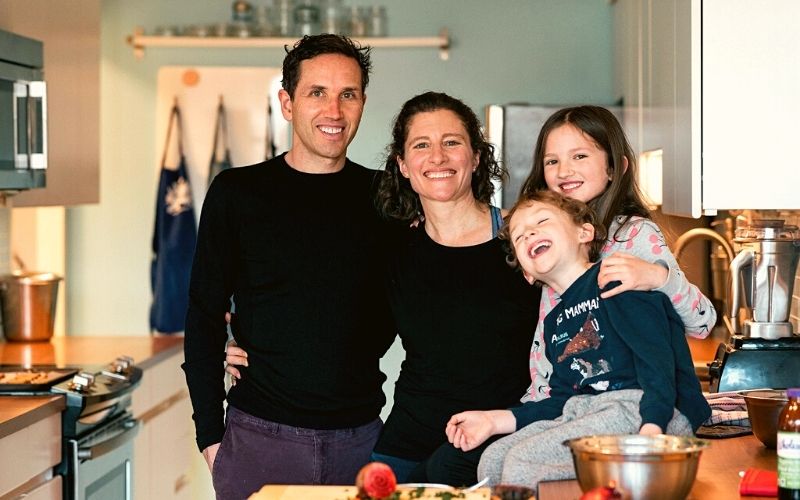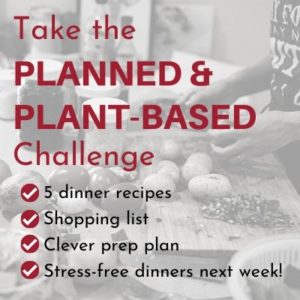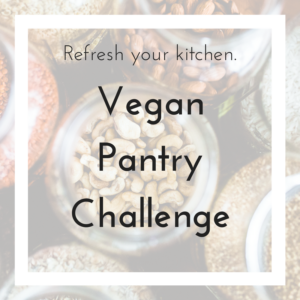When one spouse – often the wife – is going vegan but the other one isn’t there yet, what happens?
I have told my own transition story from meat lover to ethical vegan and plant-based eating advocate a few times, including along with some tips for late-blooming vegans and guidance for situations when one’s co-parent doesn’t want to raise the kids vegan. But what about my husband? How did he feel about his wife going vegan? What did it mean to him that I would no longer cooking meat, dairy, or eggs at home?
I asked him to sit down for a chat so we could talk about it and, despite being a little shy, he agreed. I think you’ll enjoy reading or listening to this story, as it is relatable for many people who haven’t been on exactly the same journey as their spouse in one area or another.
This interview was first published as a podcast episode on the Vegan Family Kitchen podcast.
You can listen to Chris and I chatting, or read this transcript (edited for clarity and concision).
My husband’s name is Chris Conklin. We met in Vancouver, just a few days after I moved here to do a PhD at the University of British Columbia. He was my neighbor in graduate student housing, in his second year of medical school at the time. He has since completed his training and become a pathologist with a sub-specialization in breast cancer. He is also a dedicated cyclist, as well as a fantastic father for our two children. Like me, he used to enjoy rare steaks, so he was not thrilled when I announced that I was going vegan. Funny how we all change.
“My wife is going vegan! What’s up with that?”
Brigitte Gemme: Do you remember the period, back in 2014, when I started cooking only vegan food at home?
Chris Conklin: Not really. To me, it was more of a gradual transition. I knew that you were starting to fill your plate with more vegetables and less meat, but it didn’t strike me as extreme, in terms of excluding meat and dairy completely. It didn’t make me uncomfortable or change my own habits that much. I do remember that you started that transition… but I didn’t know it would get this far!
BG: Tell me about the turning point that you remember vividly, then.
CC: Things were building more toward plant-based and I knew you wanted to incorporate more of that into your job going forward. Then there was a distinct moment when you told me that you would no longer be cooking or eating meat. I remember, I was just coming home from a bike ride and you said to me: “I want you to know that I have eaten my last steak and my last piece of cheese.” My initial reaction was: “Here we go, it’s happening.” See, I am an unapologetic people-pleaser. I was concerned about what friends and people around us were going to think, because there is a lot of discomfort within our culture when people step outside of what others consider the norm, whether it’s how you dress or how you eat or other lifestyle habits. A flood of thoughts came to me, including wondering about what our children would eat. We grew up with this idea that children need to eat meat and drink milk for healthy bones, to grow and be strong. Stereotypes like that die hard and they were still with me. I wondered how my parents also would respond to this, because we have family gatherings every week that are centered around food.
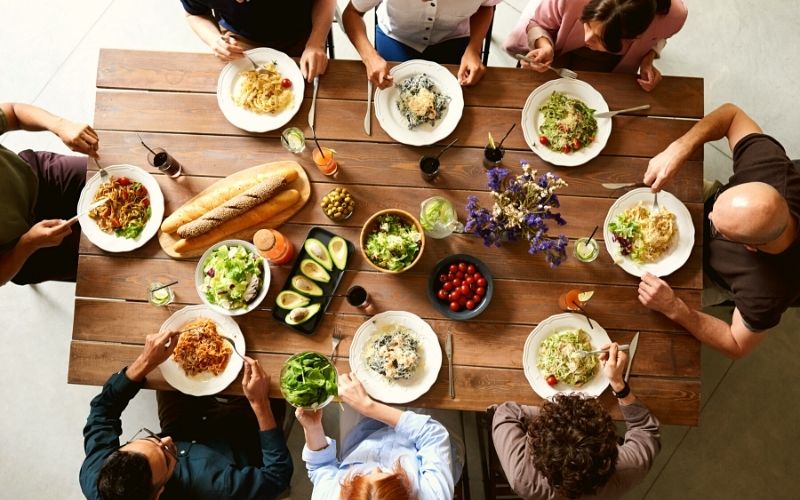
Food and love
BG: Would you say in hindsight that you were more concerned about the relationships rather than about nutrition?
CC: A bit of both, but relationships were a stronger emotional aspect of my reaction. Food is such a big part of family life that when someone embraces a strict diet – and for many in North America, plant-based diets are considered very unusual – it can be challenging. I was not so concerned about nutrition because I was starting to move toward more plant-based eating too, but I was concerned about the complete exclusion of animal products and whether we’d have a hard time fitting in with our friends and family.
BG: What happened from then on?
CC: I enjoyed the food but I kept on hanging on to those old ideas about what we should be eating. Chloe, our daughter, was only 3 at the time and she enjoyed filet mignon and other animal products. I didn’t like the idea of depriving her of the foods she liked eating. I didn’t necessarily think that steak was better than plants, but I did worry a bit about protein. For a while, after you transitioned to cooking only plants, I continued to buy steak and cook it for her. However, it was a short-lived stance on my part, because I then transitioned to plant-based eating myself.
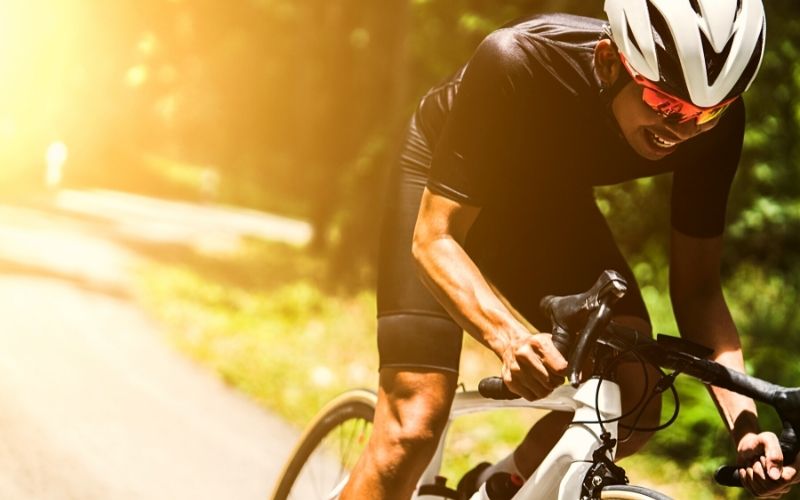
Everyone on their own journey
BG: What was your own plant-based journey like?
CC: It was gradual, but today I would never go back to eating meat, dairy, and eggs. My palate has really changed. A few years back, out of convenience, I occasionally had some meat or dairy on social occasions if they were on my plate. I would eat out of politeness, but it left me feeling heavy and full, not in a good way. I regularly went out with a couple of coworkers for dinner and one of them, who ironically has since transitioned to plant-based eating, was a staunch meat lover. We’d often go to meat- or fish-forward restaurants, but I didn’t like the feeling I had after those meals. Now I far prefer eating whole plant foods, and the variety of ingredients that I eat is far greater now since there isn’t a big piece of meat in the center of the plate with a few vegetables around it. The food tastes great, cleaner.
BG: You are a very athletic person who cycles a mind-boggling number of kilometers each year. You also have a disciplined regimen of strengthening exercises that I admire. Do you feel that going plant-based has hindered your performance?
CC: Not at all, zero hindrance, and quite possibly an improvement. I was healthy before and a good local cyclist, I took my road cycling very seriously, I like to ride hard and fast. I am older now than when I transitioned to plant-based but I feel from a performance standpoint that I haven’t lost a step. Quite possibly my performance has improved. I might be leaner now, too.
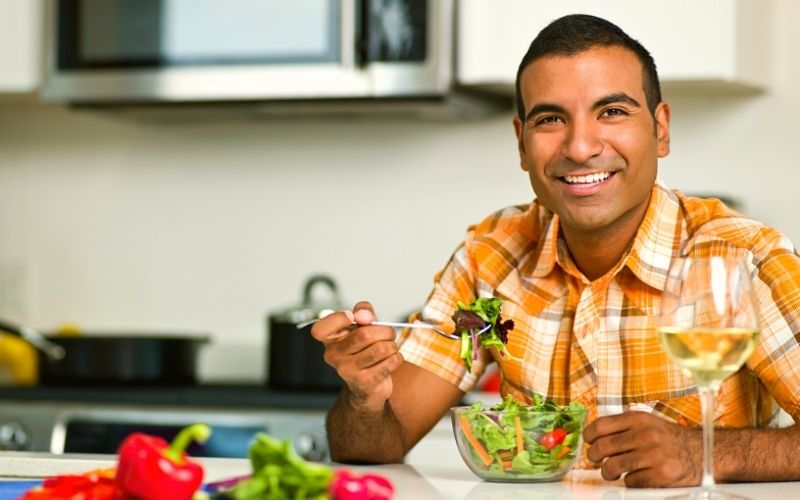
Benefits and downsides of healthy plant-based living when your wife goes vegan
BG: What do you perceive to be the benefits of eating a healthy plant-based diet? (And I don’t mean vegan hot dogs and donuts, but whole foods plant-based foods.)
CC: I am the type of person who likes to optimize my health and well-being in all regards, especially exercise, and diet too. I am now more in tune with the research that supports plant-based diets for preventing basically all diseases that afflict North Americans, like metabolic syndrome, diabetes, hypertension, obesity, cardiovascular disease, Alzheimer’s… All research points to eating the whole foods plant-based way. That motivates and supports me, and makes me feel that what I’m doing by eating this way is doing my body good and optimizing my life. It’s providing me with every opportunity to move forward in a positive, healthy way, and get the most out of my life. We only live once! The populations that eat a lot of plants don’t suffer from the typical North American diseases. Eating a plant-based diet improves my odds.
BG: You have said to me before that you feel that it adds meaning to your life, too.
CC: That’s right. When my friends question me about it, I also told them that, aside from the nutrition, it provides meaning to my life to eat that way. Eating a plant-based whole foods diet is better for the environment, long-term, and is more compassionate with regards to animals. It adds to my overall happiness to eat this way. I’ve come to that secondarily, though. At first I was doing this for the family because I felt it was important that we eat the same thing, then I really embraced it for the nutritional aspects. But once I got into it I couldn’t help but think of the animal welfare aspects, and it highlighted to me that’s it’s not just about me. There’s a greater good dimension to eating and living this way, it’s more compassionate for all beings.
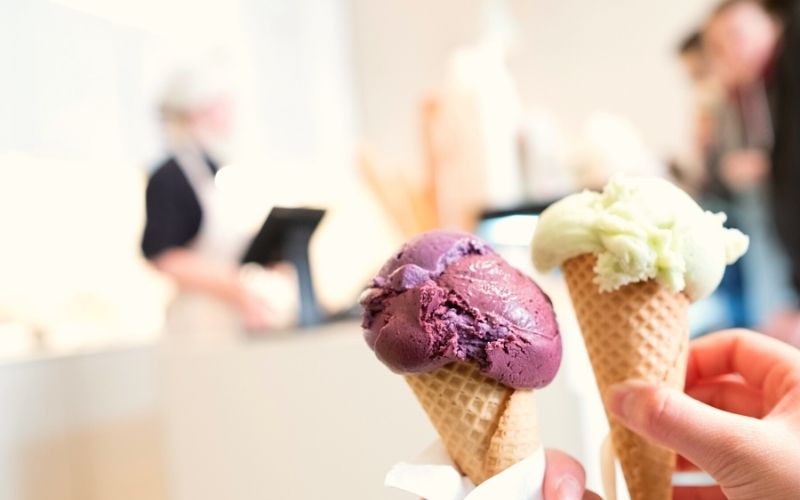
BG: What do you see as downsides of eating a plant-based diet?
CC: The biggest challenge for me was letting go of dairy-based ice cream. Many ice cream places have few dairy-free options, and those that exist often lack the texture or taste of what I remembered dairy ice cream to be. In Vancouver however there’s been a growth of options and it’s no longer difficult to go out and eat all plant-based foods! If anything, it makes it easier for us because it narrows down the number of restaurants or options to choose from.
BG: Anything else?
CC: Another issue is that stereotypes, as I mentioned earlier, die hard. Sometimes I wonder if we are getting enough of this or that nutrient in our diet. It’s not so much for myself but regarding the children. For example, with regards to cavity prevention, I have at times wondered if they were getting enough minerals and calcium. But those are just thoughts, and those nutrients can totally be absorbed from a plant-based diet. That little voice is much less of an issue than it used to be. Now I see that one can get way more nutrients from a plant-based diet than from the Standard American Diet. People really should flip the question and ask mat eaters: where are you getting your micronutrients?
BG: You don’t look protein deficient!
CC: No, we don’t have a problem with protein deficiency in North American. I went through medical school and in internal medicine rotations I remember seeing patients who had overloaded their kidneys with protein. If you are healthy you can deal with it, but it’s not necessarily a good thing in the long term.
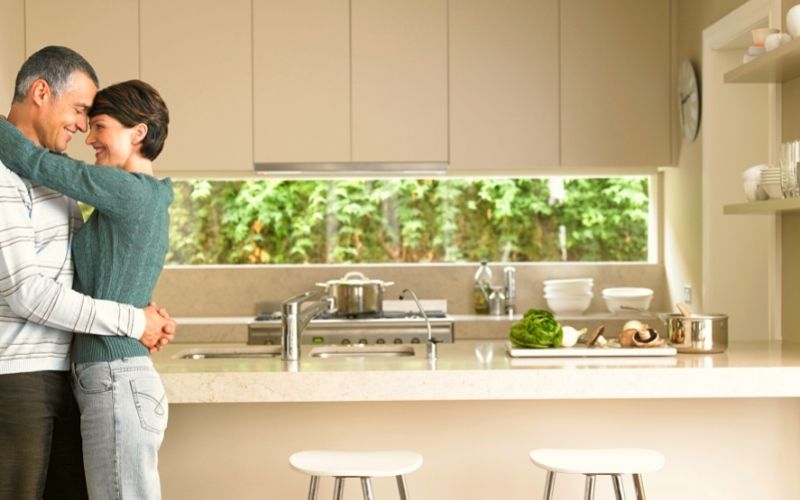
So… what did others think?
BG: You mentioned at the beginning of the interview that you were concerned about sticking out due to the vegan lifestyle. It was a big worry for you, that social aspect of it. How would you say it has turned out?
CC: The tide is turning a bit and many more people want to eat a plant-based diet too. I also feel more comfortable talking and explaining the situation to people. I don’t go out of my way to mention it, but if someone asks, I do feel it’s hard to know how they will respond to my answers. Many people still live with the old stereotypes, and maybe they are also uncomfortable about what they themselves are eating. Above all, I have really adopted this as part of my lifestyle now and I don’t ever want to go back, so I really don’t care what other people think. In my experience, the vast majority of people are respectful.
BG: What about your family? Our weekly gatherings were something you were concerned about when I said I was not going to have steak anymore.
CC: Initially, I felt a lot of uncertainty. What were my parents going to think about me, and about you? They might have been surprised but in the end they took the change really well. My mom quickly started cooking plant-based dishes separately and we’d have plenty to nourish ourselves. They have continued with their own lifestyle and eating meat and fish, but I think my mom has integrated more plant-based dishes into her cooking repertoire as well.
BG: Yes! At the beginning, maybe because it was summer, we has lots of grilled vegan burgers on the barbecue, but over time I’d say that the majority of the dishes your mom prepares are plant-based, and there is a separate platter of meat for those who want it. Your mom’s vegan food is amazing and delicious.
CC: My mom is a gourmet cook, it’s the canvas upon which she creates things, so I think integrating plant-based recipes was part of a challenge to explore for her. In general, I think my parents are aware that plant-based food is a healthier way to go, but it’s really hard for people to change their dietary habits, it takes some efforts. It seems to be that the habits that are good for us are those that are most difficult to adopt.
“My wife is going vegan! What should I do?”
BG: What would you say to a co-worker or a friend who would come to you and say: “My wife is going vegan, what should I do?”
CC: Just go with it! Because it’s going to improve your life. It will be uncomfortable at the beginning to make the transition. It’s easier if you both eat the same thing, so give it a go. You are definitely not going to feel worse. Just go with it! There might be some challenges at the beginning to source ingredients, but if you look at the medical research, it’s hard to argue with the arguments in favor of a plant-based diet. Also the food can be far tastier and no less satisfying. It’s great do discover different flavors, dishes you never experienced before, and eating this way increases the variety of foods in your diet.
BG: And that makes your gut biome happy!
CC: Yes, your biome, your brain health, your gut health, the things that we do not even think about are impacted by the foods we eat. More and more research is showing that this is the best way.
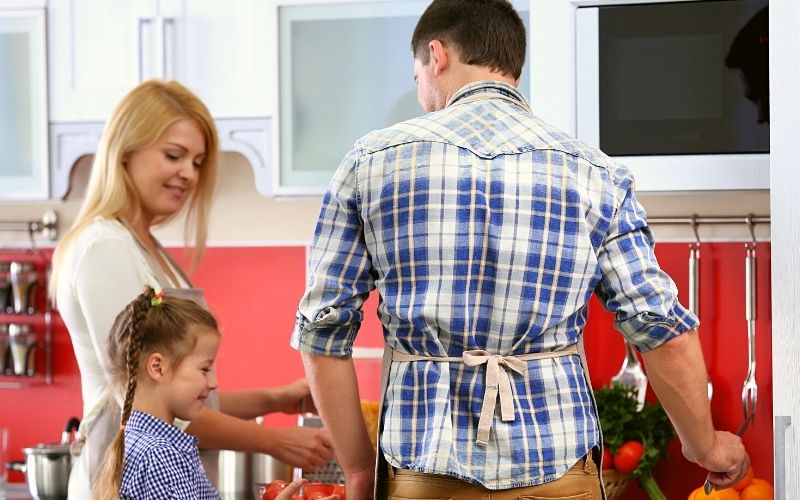
Getting back in the kitchen after when wife is going vegan
BG: When we were first married and living together, you were cooking at least once or twice or even more every week. Then, when I decided to only eat vegan food at home, I took over… because it was simpler maybe? It’s not something I am proud of, but it happened. Now, you are starting to cook again a little. I’d like to hear about your plant-based cooking experience, compared to how you cooked before.
CC: I am a rookie cook! But, yes, I do try to do it once per week. I always cook from your meal plans now because it’s simpler for me than pulling out a cookbook. From a cooking standpoint, what stands out to me is the diversity of plants we are eating. I have done some reading on the importance of eating a greater variety of plants on a regular basis for our gut biome, and I am amazed at all the different plants involved in our meals. You don’t get that experience when cooking a traditional North American dish that includes meat because it’s the center of the plate and somehow minimizes or blunts the number of other vegetables or plants. I also love the cleanliness of the food! When I cook, I appreciate the benefits of everything that goes on the plate. It’s all healthy food!
BG: Is there anything else you’d like to add about surviving when one’s wife is going vegan?
CC: You don’t really have a choice. You have to do it because having different diets in the same family is just too complicated. Have a go with it and experience it with your wife! Your life will be enriched and more meaningful. Just give it a try! It’s a new experience. If you don’t try something new, you’ll never know how good it could be for you. I don’t know anyone who’s regretted going plant-based.

